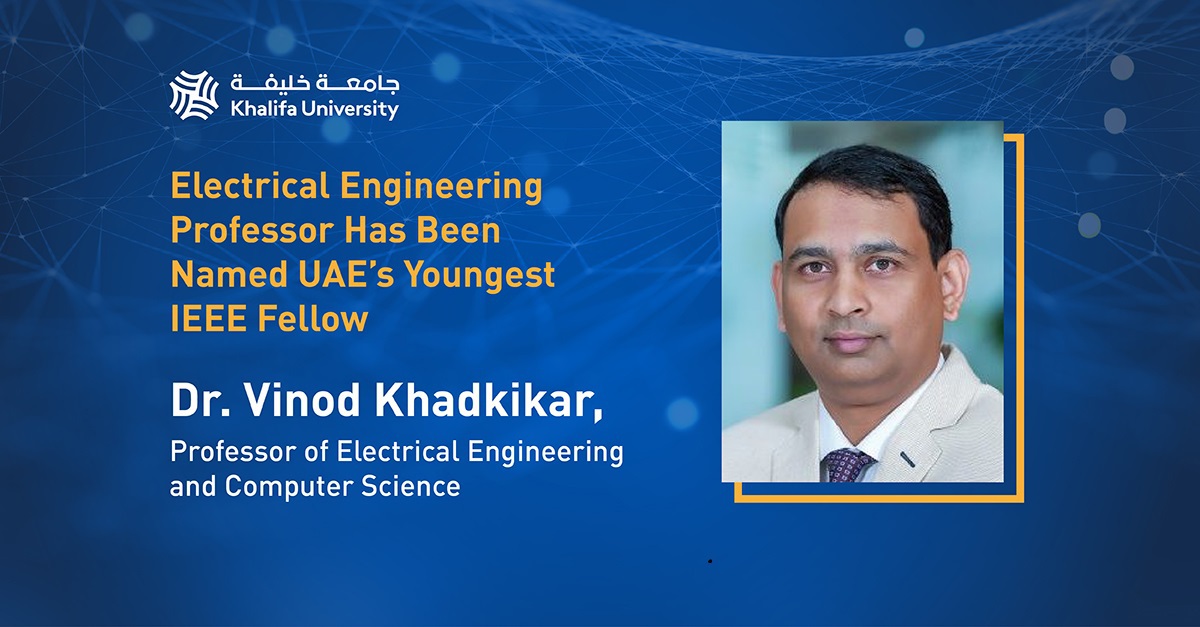
Dr. Vinod Khadkikar, Professor in the Department of Electrical Engineering and Computer Science, has been named IEEE Fellow. The distinction of IEEE Fellow is given to only select IEEE members who have made extraordinary accomplishments in the fields of interests of IEEE.
This achievement is significant for Dr. Khadkikar as he becomes the youngest researcher in the UAE to receive the recognition. “Becoming a fellow of the IEEE is the ultimate career accomplishment for electrical engineers and researchers. It is a global recognition of the extraordinary career accomplishments that have made an impact on society,” he said.
Dr. Khadkikar is recognized for his work in unified power quality conditioners (UPQCs), one of the most versatile power quality enhancement devices that can simultaneously provide shunt (current related) and series (voltage related) compensations. He has pioneered the theory of a power-angle control UPQC that demonstrates a new functionality of the load reactive power support through an underutilized series inverter. This new concept of sharing and supporting the load reactive power demand through both shunt and series inverters offers several notable merits such as better utilization of series inverters, and a considerable reduction (20%–40%) in shunt inverter rating, thus reducing the overall cost, weight, and volume of the UPQC. Dr. Khadkikar meticulously correlated the load active and reactive power with the amount of reactive power that the series inverter should share. This is a noteworthy addition to the existing control, operation, and usability of the UPQC. His findings on UPQC have been widely referenced in research articles and documented in several books.
Another notable contribution of Dr. Khadkikar to the industry is successfully implementing an artificial neural network (ANN)-based phase-locking scheme for active power filters (APFs). In APFs, the knowledge of supply voltage fundamental frequency and phase is very crucial in achieving synchronization and unity power factor (UPF) operation. He developed a novel technique using adaptive linear neurons (ADALINE) and systematically executed it by splitting the control tasks in outer (fundamental frequency and phase estimation) and inner (effective APF operation) loops. These solutions allowed Dr. Khadkikar to apply his cutting-edge approach easily in general-purpose signal processors (DSPs). His approach is versatile and can be applied in several applications including grid-connected solar and wind energy systems.
“This milestone is possible because of the substantial research funding from Khalifa University and the Abu Dhabi Government at large. I am honored to be elevated as IEEE Fellow and I strongly believe that my graduate students, research engineers, post-docs, and collaborators have played a crucial role in achieving this feat,” Dr. Khadkikar commented.
And to inspire fellow researchers, he says, “Keep pursuing your dreams with dedicated and consistent efforts and things will definitely follow through.”
Ara Maj Cruz
Creative Writer
26 January 2022